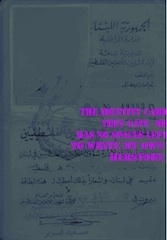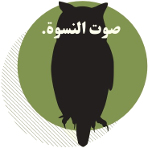
Teta Sabra
It was 1992, in a small apartment in west Beirut. I had developed an attachment for men with thick beards surrounded by the yellowiest flowers one’s memory could preserve. Later I learned it was called “marj el zohor.” Much later I realized it was the first understanding of an extended Palestine I had developed, that my own little small existence continues in reverse, passing through these men in the fields, all the way to Palestine. I had composed a song for these men, a song that my mother made me entertain her guests with, a song about Marej El Zohor.
These are some of the early memories I have about connecting with the bigger and more extended Palestine. And for many years Palestine was about going in the Eid to visit “Teta Sabra”, my grandmother who lived somewhere around Sabra and Shatila, not really in the mokhayem, but not completely out of its range.
Teta Sabra’s version of Palestine had remained a sealed mystery, something that I still regret . How come I never asked her about her own version of the story? All I know about Palestine was narrated by my Sidi (grandfather) to his children, in which I assume they have passed it along, censoring many of the inconveniences that made their lives easier and their traumas lighter. Everyone must survive in the end of the day.
Falasteen
I find myself in need of not losing these memories, in connecting them together, building a narrative of where I come from. Sidi had told the story to his children, and his children never shared it again. I don’t know if the story was too complicated to be re told, if it was a humiliating burden on them. What I know of my history is details in incomplete bits and pieces, few sentences stolen from conversations here and there. I remember that Baba, despite his love of Falasteen, had this fear of those who worked for its liberation, including his sister.
I’m Palestinian and like all Palestinians, when I say her name, I get a choke-like feeling in my throat, and most probably my shoulders widen and my face gets a serious expression. I don’t know what that means though, being Palestinian. I know it means that I experience the world differently, I can shift through many stereotypes, from a victim all the way to a freedom fighter, that my sense of nationalism doesn’t serve only Palestinians but it serves one of the greatest battles of this world, the battle between good and evil. But I don’t what it means to be Palestinian away from these constructions, off TV screens, speeches, gadgets and songs. I don’t know what does being a Palestinian between oneself and to one’s self.
Publisher:
Section:
Category:






